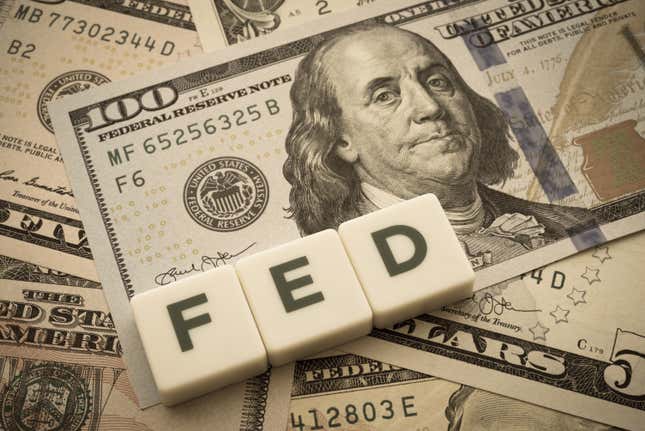
The Federal Reserve’s steepest interest rate hike in two decades is poised to hit Black consumers hard, economists say. The half-percentage-point hike will empty wallets in the form of higher interest on credit cards, business and personal loans and mortgages for everyone, but it could to do the most damage to Black consumers who the government has already acknowledged were on the bad side of the post-pandemic economic recovery.
“What we’re seeing is a lot of shocks in the economy at once,” said Keisha Blair, an economist who studies the impact of public policy on marginalized communities. In her book, “Holistic Wealth,” Blair writes of a ‘lost decade’ between the end of the last recession in 2009 and the pre-pandemic year of 2019, where the broader economy expanded greatly but Black workers didn’t see their wages, home values, net worth or borrowing power increase nearly as much as whites.
“And then, we didn’t have a war in Ukraine, we didn’t have these interest rate hikes,” she said. “For Black communities, it’s going to be substantially worse.
Blair’s fears match concerns the federal government already had. The Biden Administration last month rolled out a massive slate of initiatives aimed at addressing systemic racial inequities that have been reinforced through public policy throughout government. Many of those initiatives directly or indirectly impact economic issues affecting Black and Hispanic people and women across ethnic lines.
The Fed, which sets interest rates, said in 2020 that it was concerned about how the actions it would take the keep the economy stable post-pandemic would impact Black communities. New data, which I wrote about in March, already showed that some of the Fed’s actions, including earlier rate hikes, might already be worsening the race-wealth gap. And that’s not counting the impact that the run up in stock values and home prices over the last decade already had.
The Fed’s rate hike is aimed at lowering inflation—the overall rise in the cost of goods—by making it more expensive for banks, businesses and consumers to borrow money, thus decreasing demand. In that way, Wednesday’s rate hike will hurt all consumers, Blair said, but it will likely have specifically bad—and complex—outcomes for Black consumers.
As a group, Black consumers have lower incomes, less money saved and fewer assets like stock portfolios and retirement accounts, she said. If higher interest rates push the economy into a recession, that makes it more difficult for people on the economic margins to survive.
“People who are really cash-strapped, this situation with interest rates is going to be a big impact on them. It’s going to be harder if they need to borrow money just to pay their bills. If they’re thinking about going back to school so they can get a higher paying job, they’re going to be stuck. You’re going to see all sorts of effects from homelessness to higher unemployment,” Blair said.
But not all Black consumers are low income, and even those in the middle class have already faced difficulty in the housing market, which is directly impacted by interest rates. For example, Wells Fargo, the country’s third-largest commercial bank, denied more than half of the mortgage refinancing applications it got from Black consumers in 2020. Higher interest rates make it even more difficult for current homeowners to refinance, and could push homeownership completely out of reach for those who have been saving for a house but don’t already own one.
“All kinds of variables are going to come into play,” Blair said. “Long-term goals are going to be impacted. It seems like less opportunity is going to be available.”

